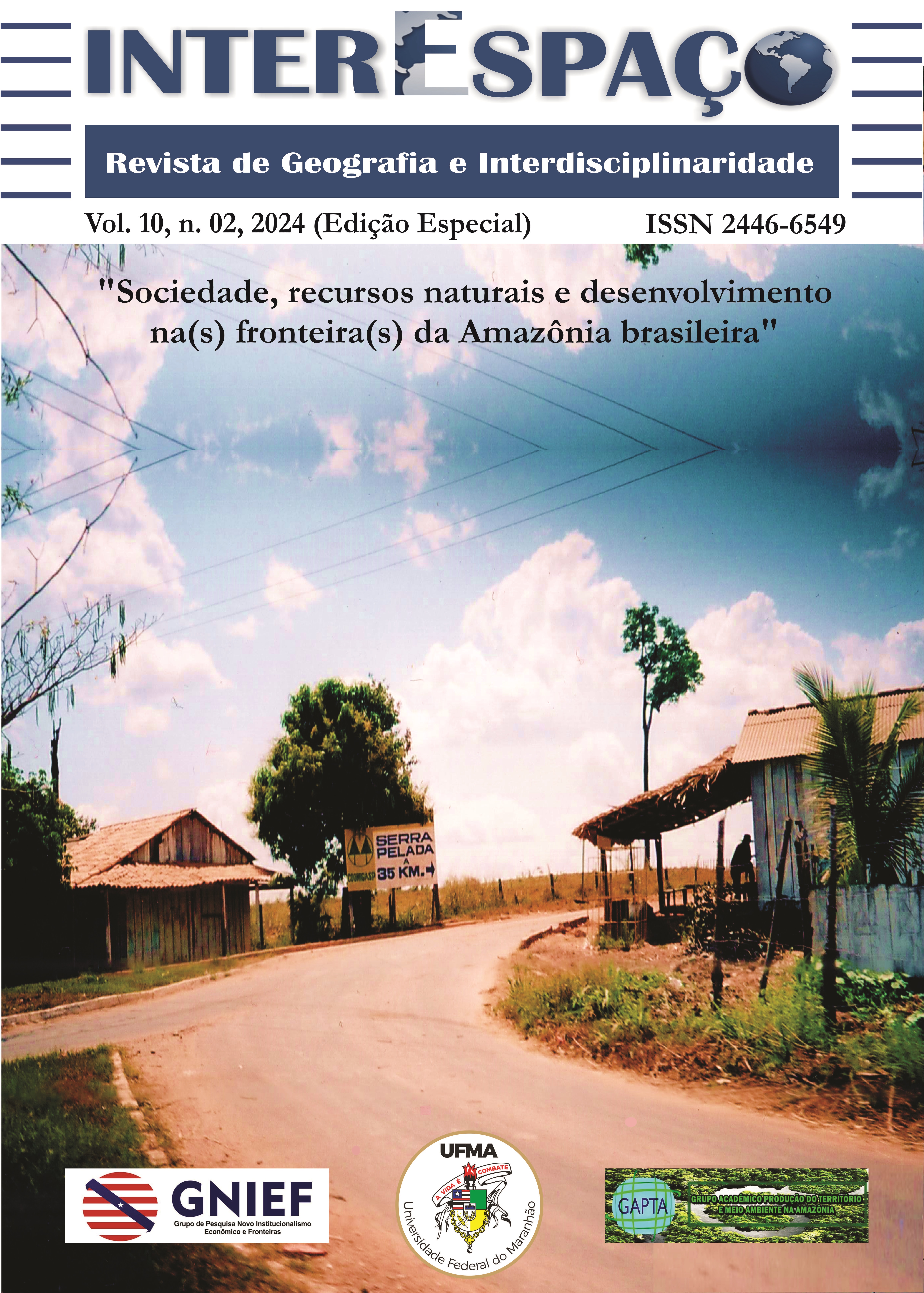Development and dilemma on the frontier: conflicts and socio-environmental impacts in the creation of the riverside territory of the Xingu River, Altamira-PA
DOI:
https://doi.org/10.18764/2446-6549.e22749Keywords:
Development, Frontier, Brazilian Amazon, Riverside Territory, Xingu RegionAbstract
The current study aims to provide a critical analysis of the conflicts and socio-environmental impacts within the creation of the riverside territory of the Xingu River in Altamira, PA. Due to the developmental model applied in the Amazon, policies have become ambiguous and contradictory, involving globalized capital and governmental institutions. The focal point of discussion is the establishment of the Xingu riverside territory in the Altamira region, a site undergoing transformations due to the construction from Belo Monte hydroelectric project, and the concept of frontier as an interpretative element articulated amid the transformations of the riparian territory. Methodologically, a qualitative study was conducted, incorporating a literature and documentary review from academic and press sources. It is intended, therefore, to reflect on the concept of development, on the frontier and socio-environmental impacts on the riverside territory, employing a dialectical model based on the studies of Sachs (2008), Esteva (2000), Ribeiro (2008), Becker (2005), Pacheco de Oliveira (2021), Martins (2009), Carvalho (2017), Venturi (2006) and Quijano (2005). Consequently, the riverside communities are affected by the development inside of the frontier for model in the region, alongside social confrontations from movements opposing this Western model.
Downloads
Downloads
Published
How to Cite
Issue
Section
License

This work is licensed under a Creative Commons Attribution-NonCommercial-NoDerivatives 4.0 International License.
Direitos autorais InterEspaço: Revista de Geografia e Interdisciplinaridade
Este obra está licenciado com uma Licença Creative Commons Atribuição-NãoComercial-SemDerivações 4.0 Internacional.
Os conteúdos publicados são de inteira e exclusiva responsabilidade de seus autores, ainda que reservado aos editores o direito de proceder a ajustes textuais e de adequação às normas da publicação.







